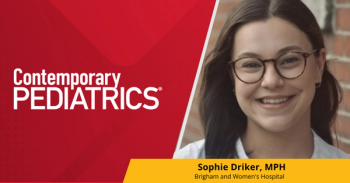
Your Voice
Can the milk she drinks affect breast development?
I enjoyed Dr. Kaplowitz's article "Precocious Puberty: Making the distinction between common normal variants and more serious problems" (August 2006). Would Dr. Kaplowitz address the matter of whether the lower age of puberty in girls is associated with consuming nonorganic milk?
Richard Weil, MDAtlanta, Ga.
The issue is usually put in terms of whether milk from cows treated with bovine growth hormone (GH) can cause early breast development in girls. Although I am aware of no studies on the matter, there is little reason to believe there is a connection. Even assuming that the GH given to cows enters their milk in substantial amounts, a human who drank the milk would digest it in her stomach, and not pass it intact into the bloodstream or lymphatic system.
And even if the bovine GH did pass intact into the bloodstream or lymphatic system, it has little, if any, activity in humans; why it would induce breast development is not at all clear. GH is similar to prolactin, but galactorrhea is the main problem with high prolactin levels, not early breast development. Despite the lack of cause-and-effect plausibility, some parents have anecdotally reported that their child's breast development regressed when the child was switched to organic milk.
Paul B. Kaplowitz, MD, PhDWashington, D.C.
Training with an EpiPen
In "Hymenoptera stings: A practical guide to prevention and management,"(August 2006) Drs. Krakowski and Golden state that families should not be given trainer autoinjectors "to prevent possible confusion between an empty trainer pen with an actual life-saving injector."
Empowering parents to practice with the trainer is integral to giving them the confidence to use it in an emergency situation. It also allows educated parents to train other caregivers. The current EpiPen 2-pack comes with a trainer for just this purpose. I believe that most pediatric allergists agree with this policy.
Seth Toback, MDWashington, Pa.
Mind your language
May I remind Contemporary Pediatrics, please, to use and model person-first language? Although the use of "Down Syndrome newborn" in a headline (Puzzler, August 2006) may have saved a few keystrokes, and it may represent the shorthand that medical professionals sometimes use among themselves, it does not demonstrate respect for the personhood of our patients and their families, nor does it reflect well on the publication.
Carol R. Hassler, MD Burlington, Vt.
Newsletter
Access practical, evidence-based guidance to support better care for our youngest patients. Join our email list for the latest clinical updates.






